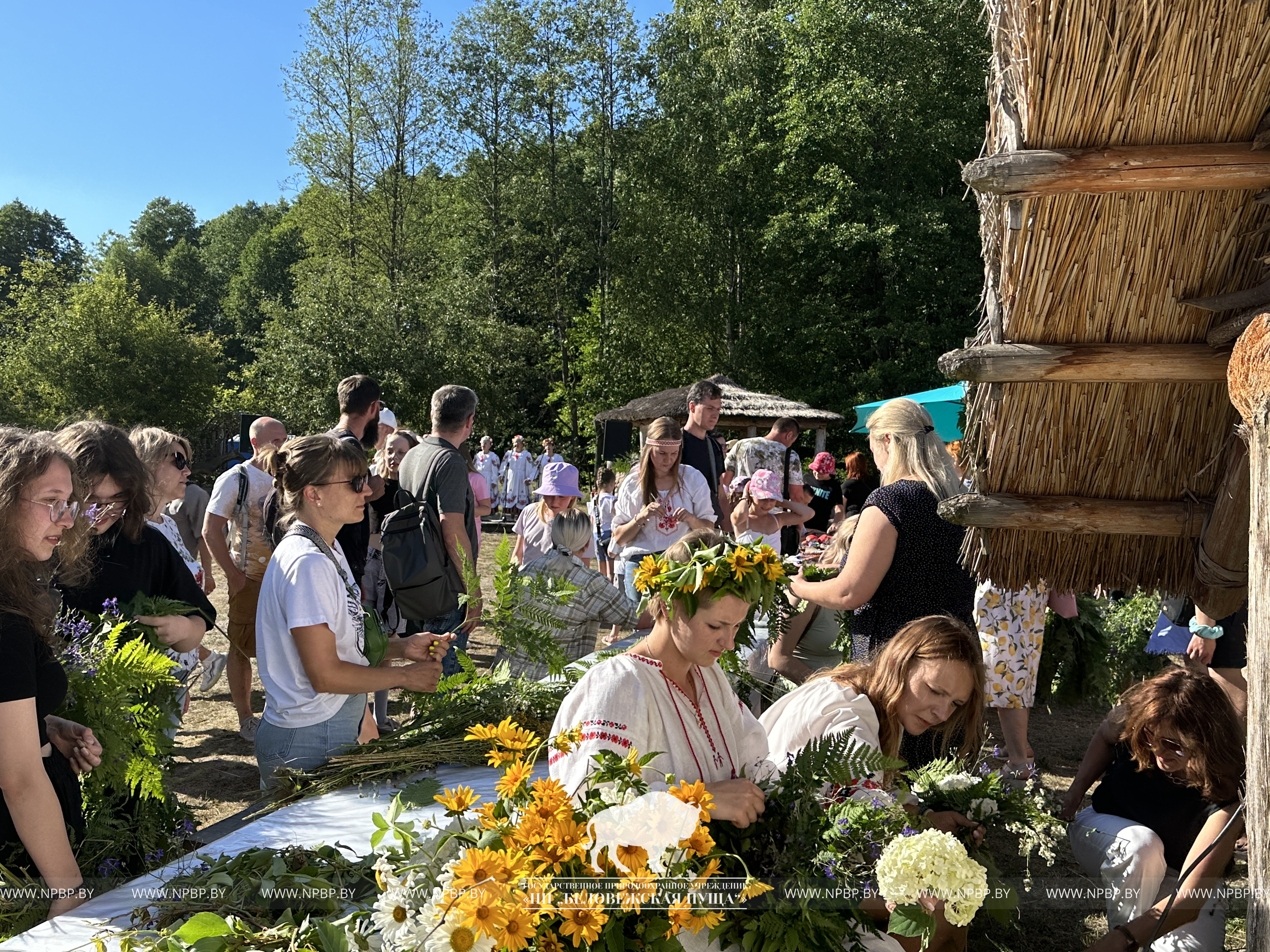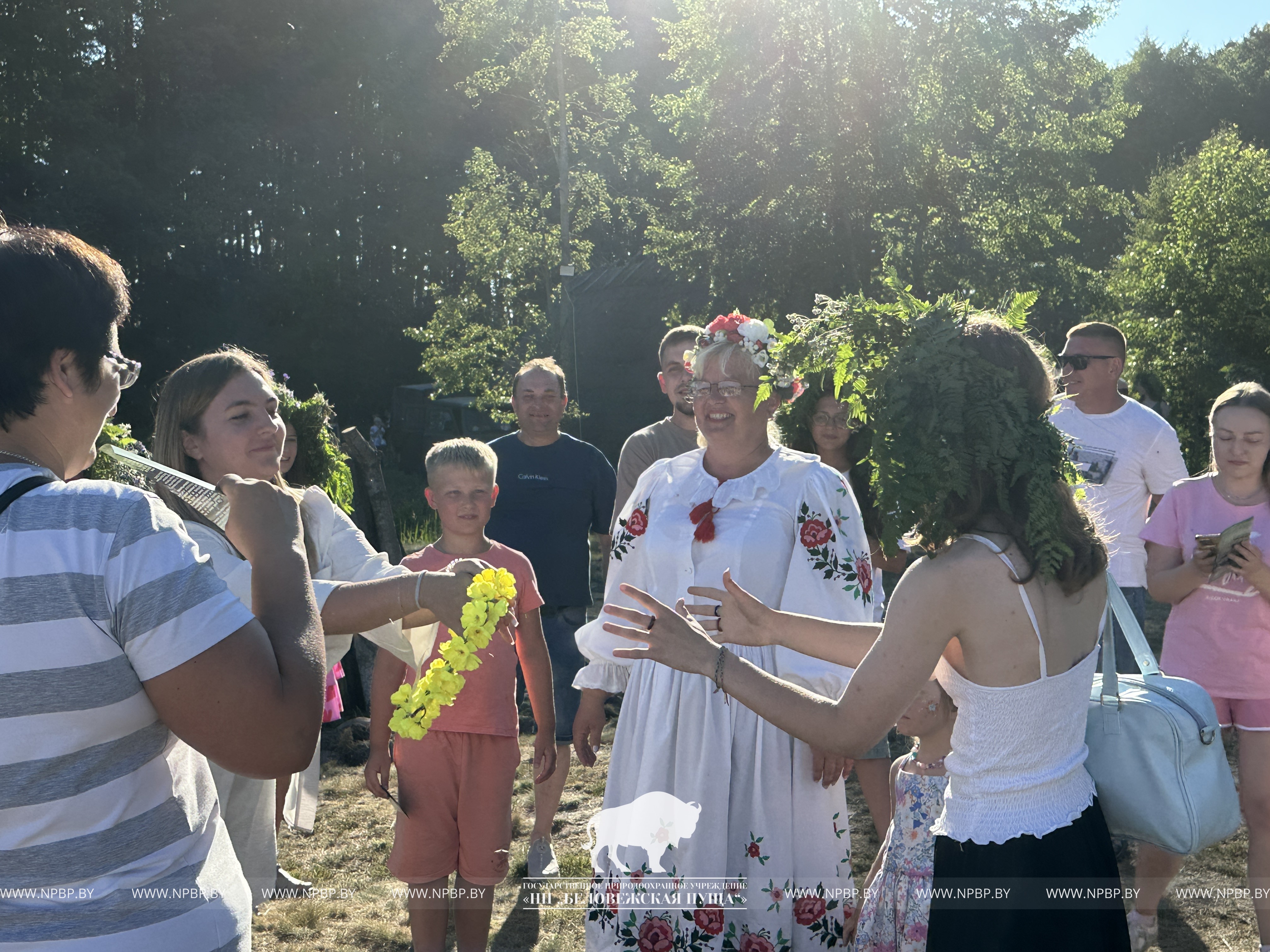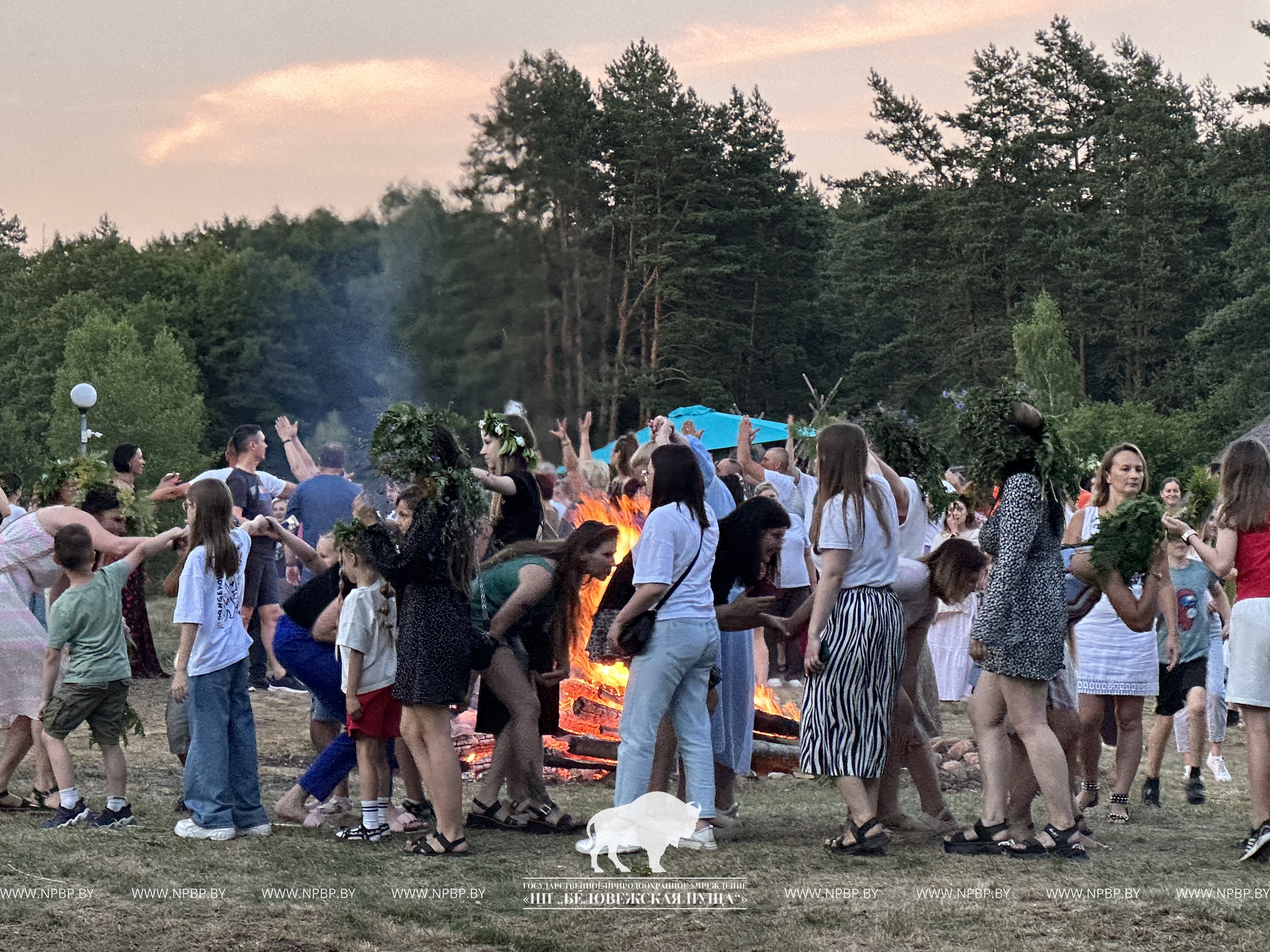In Belarus the traditions and customs of ancestors are honored. Many rituals have reached our times only in oral form, but have not lost their true meaning. Therefore, every year Ivan Day is considered the most beloved summer holiday, after which the day begins to wane and the nights become longer.
The festival has been held on the territory of the oldest reserve in Europe since 2021. The folk festivals are gaining more and more fans every year. After all this is not just a large-scale event - it is a mysterious evening full of mystical rituals.
Kupala is a holiday of Belarusian ethnic group, dating back to such deep antiquity that even archaeologists cannot tell about it in detail. The most archaic traditions of its celebration have been preserved only in Belarus. Even now in Belarusian villages Kupala Night has the status of the most revered folk holiday.
From early morning the girls collected flowers and herbs. And they always sang, because singing gave the herbs magical powers. Medicinal decoctions were prepared from these collections. They also wove wreaths from wild herbs, which they lowered into the water to learn their fate.
An equally important element of the holiday is the bonfire. Traditionally it was lit by rubbing sticks together and was considered purifying. Old things were burned in it couples jumped over it and people danced and sang around it. A burning wheel, mounted on a pole, was placed in the center – a symbol of the Sun.
Due to persecution by the church the pagan holiday of the summer solstice was timed to coincide with the Nativity of John the Baptist, the prophet who predicted the coming of Jesus Christ, whom he later baptized in the waters of the Jordan River.
Few people know, but there was another ritual – the Kupala tree. To perform it, they chose a young tree, decorated it with wreaths, flowers, ribbons. Then they took it outside the village, stuck it in the ground and danced around it during which the guys tried to steal it, and the girls protected it. After playing enough, the Kupala, as the tree was called, was burned in a fire or drowned in a river.
This year, the "Evening on Ivan Kupala in Belovezhskaya Pushcha" brought together hundreds of people. Guests were taught how to weave wreaths and held master classes on making unusual rag dolls, there were cooked game shashlik over a fire and ruddy pancakes with various fillings, treated to bannock, told about the healing properties of plants and given herbal teas to drink.
The evening ended with songs and a round dance around a large fire, the wreaths were lowered into the water, and the bravest went to look for the fern-flower. According to legend it blooms for a few moments only on this night. The finder could understand the language of animals and birds, read thoughts, command water and fire, and control evil spirits.



